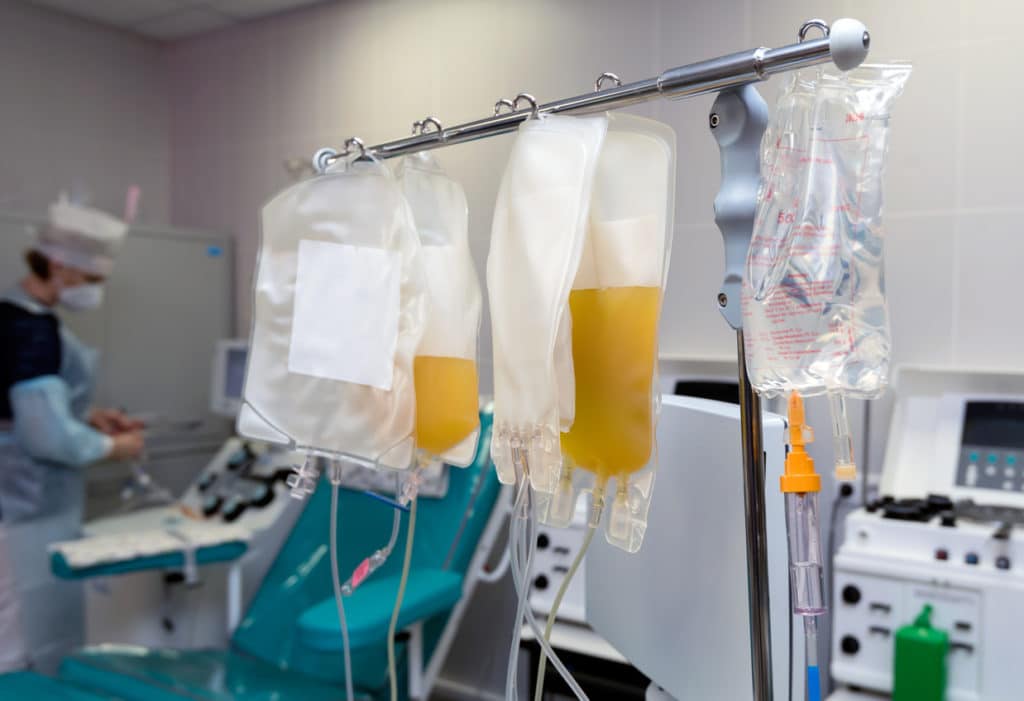...a course of plasmapheresis based on previous studies demonstrating efficacy and its safety profile. After course of therapy, there was a dramatic resolution of her psychosis, OCD traits, and anxiety. She was able to stop all of her antipsychotic and anxiety medications and resume many of her previous normal daily activities. The effect of this treatment has been sustained to the present time.
Case Rep Psychiatry
•
2018 Jun 28;2018:8189067.
doi: 10.1155/2018/8189067. eCollection 2018.
An Atypical Presentation of Pediatric Acute Neuropsychiatric Syndrome Responding to Plasmapheresis Treatment
Drew H Barzman 1 2, Hannah Jackson 2 3, Umesh Singh 4, Marcus
HELPFUL
a course of plasmapheresis based on previous studies demonstrating efficacy and its safety profile. After course of therapy, there was a dramatic resolution of her psychosis, OCD traits, and anxiety. She was able to stop all of her antipsychotic and anxiety medications and resume many of her previous normal daily activities. The effect of this treatment has been sustained to the present time.
Griffey 2, Michael S Sanchezel Sorter 2 5, Jonathan A Bernstein 4
• PMID: 30050718; PMCID: PMC6046172; DOI: 10.1155/2018/8189067
Abstract
Here we report a case of a 15-year-old female who had originally been diagnosed and treated unsuccessfully for schizophrenia, psychosis, severe anxiety, and depression. More in-depth history revealed an abrupt onset of her symptoms with remote acute infections and many exhibited characteristics of obsessive compulsive disorder with rituals. Work-up for underlying infectious, immunodeficiency, and autoimmune causes was unrevealing except for very high levels of anti-neuronal antibodies which have been linked to Pediatric Acute-onset Neuropsychiatric Syndrome (PANS). Treatment options were discussed with the family and it was decided to use a course of plasmapheresis based on previous studies demonstrating efficacy and its safety profile. After course of therapy, there was a dramatic resolution of her psychosis, OCD traits, and anxiety. She was able to stop all of her antipsychotic and anxiety medications and resume many of her previous normal daily activities. The effect of this treatment has been sustained to the present time. This case emphasizes the importance of exploring nontraditional treatments for severe, treatment-resistant mental illness which requires a multidisciplinary approach. Further research is warranted in larger populations to investigate pathomechanisms and treatment of PANs/PANDAs.

